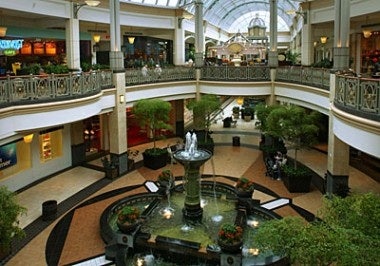Reducing High Luxury Tariffs, Which Have Turned Off High-End And Middle-Class Consumers Alike, Could Give China's Luxury Revenues A Boost#

China's notoriously high luxury tax, which adds a 30-40% premium to a wide (and ever-changing) array of goods -- from the usual suspects like handbags and jewelry to some sporting goods like golf clubs -- is a source of constant frustration for many luxury brand marketers. Regardless of how much money is poured into advertising, boutiques and consumer outreach, many brand managers have found that their glittering Beijing and Shanghai locations function more as "showrooms" for wealthy Chinese to find items they'll later buy elsewhere than a "store" in the traditional sense. Exacerbated by the high luxury tax, which discourages the core Chinese luxury market -- wealthy and ultra-rich urban dwellers -- from buying their favorite luxury brands domestically rather than simply hopping over to tariff-free Hong Kong or going on a shopping spree while on a European or American vacation, selling luxury in China is not nearly as easy as many commentators make it out to be. And with the growth and popularity of e-commerce in China, through sites like Taobao, a potentially larger hurdle has emerged -- how to sell to a "captive audience" (middle-class urban professionals) who is tech- and fashion-savvy enough to figure out ways to get their luxury goods without setting foot in a mall.
As many analysts of the Chinese luxury market have pointed out over the years, Chinese consumers like to shop around for the best price -- it's an ingrained cultural characteristic that extends from the upper-class to the country's rural peasantry, and it's not going to change. With a rougly 30% luxury tax slapped on to luxury goods, physical boutiques simply can't compete with online stores for the middle-class yuan. As a recent Global Times article noted, because of the growth of online shopping on the lower end and increased international travel on the higher end, luxury retailers are being squeezed in China:
A luxury buying spree is typically an important part of any Chinese package tour to Europe or the US because luxury goods sold in Western countries are usually 25 to 35 percent cheaper than those sold in China where luxury tariffs and other taxes and fees hike the price, Zhu Bo, an employee with a Beijing-based international exhibition company who usually goes to Europe on business travel and buys luxury goods for her friends, told the Global Times.
So it's no wonder that when mainlanders travel to the US, Europe or even tariff-free Hong Kong, few fail to replenish their luxury stock. But increasingly more Chinese high-end shoppers are finding they don't need a passport or Hong Kong entry card to fulfill their more material cravings.
They can sit at home and order their designer goods from websites, which purchase the items for them from the Western markets. Though the sties charge commissions, they are still much cheaper than luxury shopping in China itself.
Perhaps noticing the dent that online shopping is putting into the valuable tax revenue they'd be getting if these consumers trekked down to their local high-end mall, the Chinese government appears to be set to lower the luxury tax by 10%, which may not sound like a lot, but could help close the gap between the online price (plus VAT and shipping) and the in-store price. From China.org.cn:
The Ministry of Commerce is drafting a motion to lower China's tariffs imposed on luxury import goods in an effort to boost sales revenue of the country's luxury market, the International Finance News reported Thursday.
The draft, which will lower import duties on cosmetics, jewelry and leather goods, is expected to be announced by the end of the year and go into effect early next year, the newspaper said.
The newspaper reached out to the Ministry of Commerce but failed to get a reply from the authorities.
Generally speaking, the prices of luxury goods in the overseas market are 30 to 50 percent lower than those in the Chinese market. An AC Nelson survey found that Chinese outbound tourists consume a total of over US$3 billion each year, and their consumption volume is still increasing.
If China's luxury market is to truly mature, domestic purchases are going to have to increase. Luxury brands, quite simply, are going to lose patience with sinking millions of dollars into the country to construct and outfit new boutiques that don't sell anything. That's where the equation of middle-class buyers, smaller cities, and a lower luxury tax come together. Though the market still continues to grow, and should maintain a 20-35% growth rate over the next five years (according to a recent Bain report) as luxury brands spread to the country's second- and third-tier cities, without repeat buyers who exhibit significant brand loyalty and -- perhaps most importantly -- buy in China when they have the means to do so outside the country on international shopping jaunts, China's domestic luxury market growth will be unsustainable and may be overshadowed in 10-15 years by that of its neighbor, India.